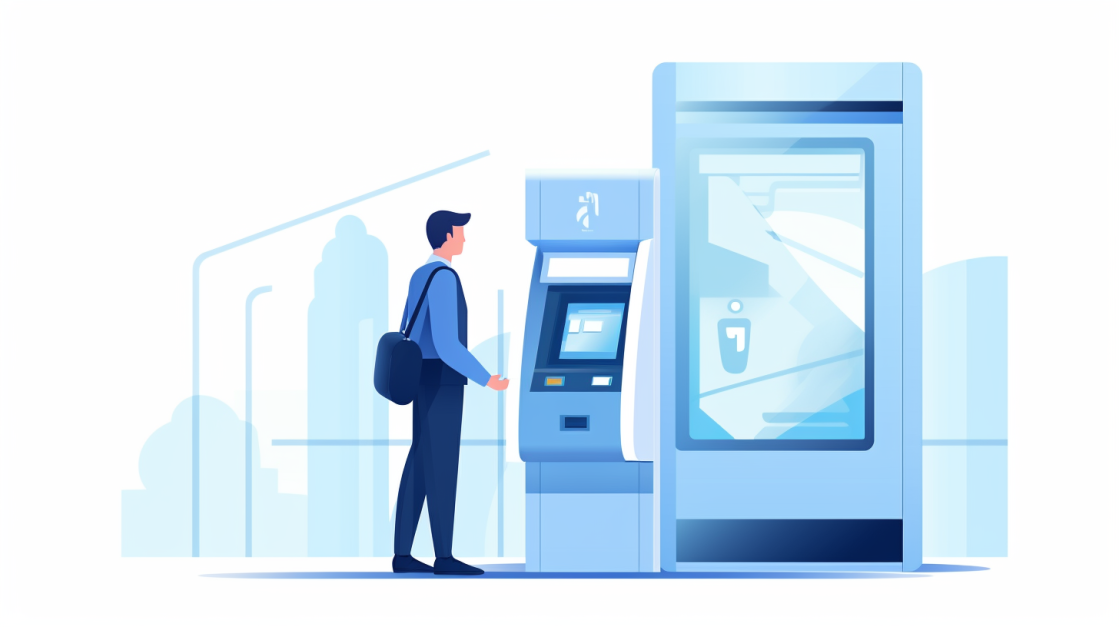Remote Work And Digital Nomad Lifestyle

Stepping into the vast realm of remote work or contemplating a digital nomad lifestyle can certainly feel like a challenging puzzle. It’s like standing at the edge of an ocean, intrigued by the endless opportunities but uncertain about setting sail.
This blog post aims to act as your compass in these unfamiliar waters, offering you insider tips, strategies, and not-to-miss benefits from my own exciting journey as a successful digital nomad while equally shedding light on potential challenges.
So buckle up and get ready for this fantastic voyage that could unlock your dream of location independence!
Key Takeaways
- A digital nomad is someone who works while they travel and uses the internet to do their job from anywhere in the world.
- Transitioning to a digital nomad lifestyle involves evaluating if it’s a good fit, budgeting for nomadic life, choosing destinations, and enhancing remote work skills.
- The benefits of being a digital nomad include flexibility, travel opportunities, increased job satisfaction, cost savings, personal growth, networking opportunities, and improved work-life balance. However, there are also challenges such as loneliness and isolation, time zone differences, internet connectivity problems, constant moving and finding accommodation.
Understanding the Digital Nomad Lifestyle
The digital nomad lifestyle refers to individuals who work remotely and have the freedom to travel and live in different locations while earning a living.
Definition of a Digital Nomad

A digital nomad is a person who works while they travel. They use the internet to do their job from anywhere in the world. It could be a coffee shop, hotel room, or even a moving bus! As long as there’s good internet, they can work.
Their jobs give them money to pay for their travels. You see, being a digital nomad is not just about traveling. It’s also about working and earning money on the go.
Digital Nomad vs. Location Independent
A digital nomad uses technology to work from different places. They may be in a coffee shop one day and a hotel the next. Location independent workers also use tech tools, but they can complete their work from any place they choose to be.
However, there are some key differences between these two groups. For example, some people who have location independence might stay in one spot for a long period of time. They could set up shop in an exciting city or quiet countryside—wherever feels comfortable!
On the other hand, Digital Nomads usually move around more often because their lifestyle is funded by remote jobs. Some even sell their homes or other belongings so that moving is easier for them.
But let’s not forget – both lifestyles come with challenges too! Some digital nomads can feel lonely if they’re always on the move; it can be hard sometimes to fit into new cultures or adjust to different time zones all the time.
Also, no matter where you are working from, good internet access is vital which sometimes becomes difficult when you’re constantly changing locations.
Transitioning to a Digital Nomad Lifestyle
Transitioning to a Digital Nomad Lifestyle involves evaluating if it’s a good fit, budgeting for nomadic life, choosing destinations, and enhancing remote work skills.
Evaluating if it’s a Good Fit
Being a digital nomad is not for everyone. You need to ask yourself some hard questions first. Are you okay with change? Can you work well on your own? Do you like to travel and see new places? This lifestyle lets you work from many places like cafes, hotels, or travel trailers.
But it also means saying bye to a steady home and most stuff that won’t fit in a bag. Most of all, are you okay with less stress but more unknowns each day? Think about what makes you happy, then decide if this way of life fits those needs.
Budgeting for a Nomadic Lifestyle
Managing your money is a key step in living a nomadic lifestyle. This involves:
- I make clear plans about the places I want to visit and live.
- I set aside money for my daily needs such as food, water, and other basics.
- I keep some cash for emergencies or unexpected costs.
- Selling of items that are no longer needed helps me save up more funds.
- I do research on how much things cost at my next stop, so I know how much to budget.
- Having an emergency fund gives me peace of mind while travelling.
- Cutting back on unnecessary expenses helps me to save more.
- Regularly checking my bank balance keeps me aware of where I’m at with my spends.
- Putting aside funds for health insurance is also part of my budgeting plan.
- Working remotely allows me to fund my travels and maintain this lifestyle.
Choosing your Destination(s)

When considering a digital nomad lifestyle, choosing the right destination is key. Here are some important factors to consider:
- Quality of life: Look for destinations that offer a high quality of life, with access to amenities like healthcare, transportation, and recreational activities.
- Affordability: Consider the cost of living in different destinations. Look for places where your budget can stretch further, allowing you to live comfortably without breaking the bank.
- Digital infrastructure: A strong internet connection is essential for remote work. Research and choose destinations with reliable and fast internet access.
- Safety: Prioritize safety when selecting a destination. Look for places with low crime rates and political stability to ensure your well-being while living and working remotely.
- Community: Consider whether you prefer being surrounded by other digital nomads or if you prefer integrating into the local community. Some destinations have established digital nomad communities, while others provide opportunities for cultural immersion.
- Climate and natural beauty: Think about what kind of environment suits you best. Do you prefer warm tropical beaches or cooler mountainous regions? Choose a destination that aligns with your preferences.
Enhancing Your Skills for Remote Work
To excel in remote work, it’s important to enhance your skills for this type of job. First, improve your communication skills since you’ll rely heavily on virtual interactions. Make sure you can express yourself clearly and adapt your communication style to different platforms.
Secondly, develop strong time management skills. Remote work requires self-discipline and the ability to prioritize tasks effectively. Learn how to set goals, manage deadlines, and stay focused on completing your work efficiently.
Additionally, being tech-savvy is crucial for remote work success. Familiarize yourself with various digital tools and platforms commonly used in remote settings to collaborate with colleagues and complete tasks seamlessly.
Pros and Cons of Being a Digital Nomad
The digital nomad lifestyle offers many benefits, such as flexibility and the ability to travel while working. However, it also comes with challenges like loneliness and internet connectivity issues.
Learn more about the pros and cons of being a digital nomad in this blog post.
Benefits of the Digital Nomad Lifestyle
The digital nomad lifestyle offers many benefits, including:
- Freedom to work from anywhere: Digital nomads have the flexibility to choose their work environment and can set up their office in any location they desire.
- Travel opportunities: Digital nomads have the opportunity to explore different cities, countries, and cultures while working remotely.
- Increased job satisfaction: Working in a traditional office setting may not be for everyone. The digital nomad lifestyle allows individuals to find a better work-life balance and choose jobs that align with their passions and interests.
- Cost savings: By living in lower-cost destinations or taking advantage of travel deals, digital nomads can often save money compared to the expenses of living in one place permanently.
- Personal growth: The experiences gained from traveling and immersing oneself in new cultures can lead to personal growth and development.
- Enhanced creativity: Being exposed to different environments and perspectives can stimulate creativity and problem-solving skills.
- Networking opportunities: Digital nomads often meet other like-minded individuals while traveling, leading to valuable connections and potential collaborations.
- Improved work-life balance: The ability to work remotely allows digital nomads to spend more time with loved ones, pursue hobbies, or engage in leisure activities without sacrificing their career.
- Flexibility in schedule: With the freedom to set their own hours, digital nomads can design a schedule that suits their productivity patterns and personal preferences.
- Increased resilience and adaptability: Navigating new places, dealing with unexpected situations, and managing time zone differences all contribute to developing resilience and adaptability skills.
- Expanded cultural understanding: Living among locals in different parts of the world provides unique insights into diverse cultures, traditions, languages, and customs.
- Reduced environmental impact: By embracing a more minimalist lifestyle with fewer belongings and reducing commuting needs, digital nomads contribute to a smaller carbon footprint.
- Self-discovery: The digital nomad lifestyle encourages self-reflection, self-reliance, and a deeper understanding of oneself.
- Professional growth opportunities: Working remotely often requires individuals to take on more responsibilities and become adept at various skills, leading to professional growth and broadening their skill set.
- Enhanced work productivity: Many digital nomads find that they are more productive in remote work environments due to fewer interruptions and the ability to design their ideal workspace.
Challenges of the Digital Nomad Lifestyle
Being a digital nomad comes with its share of challenges. Here are some of the key difficulties that digital nomads may face:
- Loneliness and isolation: Working remotely means you won’t have coworkers or colleagues to interact with on a daily basis, which can lead to feelings of loneliness and isolation.
- Time zone differences: Digital nomads often work with clients or team members in different time zones, making it challenging to coordinate meetings and maintain effective communication.
- Internet and connection problems: Reliant on stable internet access for work, digital nomads may encounter connectivity issues or slow internet speeds when traveling to remote locations or countries with unreliable networks.
- Constant moving: Frequent travel and moving from one location to another can be physically and mentally exhausting, leading to feelings of insecurity and instability.
- Finding accommodation: Finding suitable accommodation that meets your needs, such as reliable internet access, can be a challenge in some destinations, especially if you’re on a tight budget.
- Making friends: Building a social network can be difficult when constantly on the move, as it takes time to establish meaningful connections with people in new places.
- Emergency backup plans: Being away from your support network during emergencies or unexpected situations can be stressful and require careful planning.
Common Jobs for Digital Nomads

Digital nomads have a wide range of job opportunities available to them, including writer/editor, project manager, online teacher/tutor, social media manager, and web designer. Read on to discover more about these exciting career options for digital nomads!
Writer/Editor
As a writer/editor, I find the digital nomad lifestyle to be a perfect fit for me. The flexibility and freedom that comes with this job allow me to work from anywhere in the world.
Whether I’m exploring new countries or immersing myself in different cultures, my work travels with me. Collaboration and networking opportunities are also important to me as a writer/editor, and technology allows me to connect with clients, colleagues, and peers no matter where I am.
Additionally, having a flexible work schedule and generous leave policies provides the balance I need to maintain my productivity and creativity. To stay up-to-date with industry trends, professional development stipends are often offered to writer/editors like myself.
Overall, being a writer/editor in the digital nomad world gives me the freedom and opportunities that traditional office jobs may not provide.
Project Manager
As a project manager in the digital nomad lifestyle, I play a crucial role in overseeing and coordinating various tasks and timelines for remote teams. Good communication skills are essential as I collaborate with team members from different locations using technology tools like video conferencing and project management software.
It’s important to research the work-from-anywhere job market and find companies that support remote work to secure opportunities. While being a digital nomad has its challenges, such as dealing with time zone differences and internet connectivity issues, employers often provide professional development stipends to help me stay updated on industry trends and network with peers.
Online Teacher/Tutor
As an online teacher/tutor, I have the opportunity to be a digital nomad and work remotely from anywhere in the world. This job allows me to use technology and communication tools to connect with students virtually, providing them with personalized education and guidance.
Whether it’s teaching English as a second language, tutoring in math or science, or instructing in a specialized subject area, I can find remote teaching opportunities through resources like FlexJobs.
Being an online teacher/tutor not only allows me to fund my travels but also gives me the flexibility to set my own schedule and maintain a balanced lifestyle while exploring different destinations around the globe.
Social Media Manager
As a social media manager, my role is to manage and promote a company’s social media channels. I create engaging content, interact with followers, and analyze social media metrics to improve performance.
The best part is that I can work remotely, which means I have the freedom to travel and work from anywhere in the world. This remote setup allows me to have a flexible schedule and maintain a good work-life balance.
To excel in this role, excellent communication skills are essential, along with proficiency in various social media platforms and tools. It’s an exciting job that combines creativity and strategy while giving me the opportunity to explore new places.
Web Designer
As a web designer, I have the opportunity to embrace the digital nomad lifestyle and work remotely from different locations. It’s an exciting prospect to combine my passion for design with my love for travel.
Not only do I get to create beautiful websites, but I also have the freedom to explore new places and cultures. To stay current in my field, professional development stipends are offered specifically for nomadic web designers like myself.
These allowances help me stay up-to-date with industry trends and connect with fellow designers around the world. Additionally, remote work offers annual learning and development stipends of $1,000 for web designers like me so that we can continue enhancing our skills while working from anywhere.
The Logistics of Nomadic Life
Setting up a business, understanding taxes, banking, staying connected on the move, receiving mail & packages, and insurance for digital nomads – all important aspects of living a nomadic life.
Learn more about these logistics to ensure a smooth transition into the digital nomad lifestyle.
Setting Up a Business
Setting up a business that caters to the logistics of nomadic life and the digital nomad lifestyle is an exciting venture. As more people embrace remote work and choose to live a location-independent lifestyle, there is a growing demand for services and support tailored to their needs.
This type of business can provide valuable solutions such as coworking spaces, accommodation options, transportation arrangements, and networking opportunities for remote workers. Offering professional development stipends can also help nomadic workers stay updated with industry trends and collaborate with peers.
It’s important to create flexible work schedules and leave policies that cater to the unique demands of this workforce, who may need to work odd hours or take time off for travel. Another key challenge is ensuring compliance with local labor laws when implementing a “work from anywhere” policy.
Understanding Taxes for Digital Nomads
Understanding taxes for digital nomads is essential to ensure compliance with local tax laws and regulations. As a digital nomad, it’s important to understand how your income will be taxed and what deductions you may be eligible for.
Each country has its own rules regarding taxation for remote workers, so it’s necessary to research and consult with a tax professional or accountant who specializes in international taxation.
One key consideration is the concept of “permanent establishment,” which refers to having a significant presence in a particular country that could trigger tax obligations. It’s crucial to understand the rules surrounding permanent establishment in each country you visit or work from, as this can affect your tax liability.
Another important factor is staying up-to-date on changes in tax laws and regulations. Tax laws can change frequently, so regularly reviewing your tax situation and understanding any updates or revisions is vital.
This helps you avoid any penalties or fines resulting from non-compliance.
Banking for Digital Nomads
 As a digital nomad, having the right banking services is crucial to support my nomadic lifestyle and remote work. I need banking options that are flexible, accessible, and tailored to my unique needs.
As a digital nomad, having the right banking services is crucial to support my nomadic lifestyle and remote work. I need banking options that are flexible, accessible, and tailored to my unique needs.
Online banking and digital payment solutions are essential for me to manage my finances remotely. Being able to easily transfer money, pay bills online, and track my spending in real-time is important when I’m constantly on the move.
It’s also helpful to have a bank that doesn’t charge excessive fees for international transactions or ATM withdrawals. With the right banking setup, I can focus on exploring new destinations without worrying about managing my money.
Staying Connected On the Move
Staying connected on the move is very important for digital nomads. Here are some ways to stay connected:
- Use reliable internet service providers and always have backup options available.
- Invest in a portable Wi – Fi hotspot or pocket router for constant internet access.
- Take advantage of co-working spaces that offer high-speed internet connections.
- Use virtual private network (VPN) services to ensure secure and private internet browsing.
- Consider purchasing local SIM cards with data plans in each destination to stay connected on your mobile devices.
- Utilize communication tools like Skype, Zoom, or Slack for meetings and collaboration with colleagues.
- Stay organized with cloud – based storage solutions like Dropbox or Google Drive for easy access to files from anywhere.
- Keep your devices charged by carrying power banks and adapters for different plug types.
- Research and choose accommodation options that provide reliable internet connectivity.
- Stay updated on local laws and regulations regarding internet usage to avoid any legal issues.
Receiving Mail & Packages
As a digital nomad, receiving mail and packages can be a challenge. Here are some options to consider:
- Virtual Mail Services: These services provide you with a physical address where your mail and packages can be received. They can scan and email the contents to you or forward them to your current location.
- Traveling Mailbox: This popular virtual mail service allows you to choose from various addresses across the United States. They offer mail scanning, forwarding, and even check deposit services.
- Anytime Mailbox: With Anytime Mailbox, you can select from over 900 locations worldwide. They provide real-time notifications when new mail arrives and give you the option to scan, forward, or discard unwanted items.
- iPostal1: This virtual mailbox service has a network of over 2,000 locations globally. They offer flexible plans for individuals and businesses and provide secure digital access to your mail and packages.
Insurance for Digital Nomads
Insurance for digital nomads is important to provide coverage and protection for emergencies and unexpected situations. As a digital nomad, I need insurance that covers different aspects of my life.
One essential type of insurance is health insurance, which takes care of medical expenses, emergency evacuations, and even medical repatriation if needed. Another crucial coverage is travel insurance, which protects me against trip cancellations, lost or stolen belongings while traveling, and emergency medical expenses.
Additionally, liability insurance is important as it protects me in case I accidentally cause damage or harm to others while working or traveling. Having these types of insurance gives me peace of mind knowing that I am covered in case something goes wrong during my nomadic journey.
Making the Digital Nomad Leap

Making the Digital Nomad Leap requires careful preparation and a commitment to embracing the nomadic lifestyle.
Saving and Budgeting
To make the digital nomad lifestyle work, it’s essential to prioritize saving and budgeting. As a digital nomad, I sell my belongings and simplify my life to save money for travel expenses.
I also set a budget that covers my accommodation, transportation, and daily expenses while on the move. It’s important to keep in mind that unexpected costs can come up, so having an emergency fund is crucial.
By being mindful of spending and planning ahead, I can ensure financial stability while enjoying the freedom of working remotely from anywhere in the world.
Dealing with Criticism and Doubts
Dealing with criticism and doubts can be tough when transitioning to a digital nomad lifestyle. Some people may not understand or support your decision, which can make you doubt yourself.
It’s important to remember that this is your life and you have the right to pursue what makes you happy.
One way to handle criticism is by educating others about the benefits of being a digital nomad. Explain how it allows for more freedom, flexibility, and opportunities for personal growth.
Share stories and examples from other successful digital nomads to help inspire confidence in your choice.
It’s also crucial to surround yourself with a supportive community of like-minded individuals who understand your goals and aspirations. Join online forums, attend meetups, or join social media groups where you can connect with other digital nomads who can provide advice, encouragement, and motivation.
Embracing the Reality of Nomadic Life
Embracing the reality of nomadic life is about adapting to the challenges and joys that come with working and living in different locations. It requires flexibility, open-mindedness, and a willingness to embrace change.
As a digital nomad, I have learned to appreciate the freedom of being able to work from anywhere while exploring new cultures and experiences. However, it’s important to acknowledge that there are also downsides such as loneliness and isolation at times.
Despite these challenges, I choose to focus on the opportunities for personal growth, cultural immersion, and the unique lifestyle that comes with being a digital nomad. It’s about finding balance between work and leisure, creating routines in unfamiliar environments, and building connections with other like-minded individuals along the way.
The Future of Digital Nomadism
The future of digital nomadism looks promising, with the rise of digital nomad visas and the growing popularity of remote work. Popular destinations such as Estonia, Georgia, and Barbados are offering special visas to attract location-independent professionals.
This trend indicates a shift towards a more flexible and global workforce, where individuals can choose to live and work from anywhere in the world. As technology continues to advance and remote work becomes more mainstream, we can expect to see an increase in opportunities for digital nomads and a thriving culture that embraces this lifestyle.
The Rise of Digital Nomad Visas
Digital nomad visas have become increasingly popular in recent years, providing more opportunities for individuals to work and live in different countries. These visas are designed to attract remote workers and freelancers, allowing them to legally stay in a country for an extended period while working remotely.
Countries like Estonia, Barbados, Spain, and Thailand have introduced digital nomad visa programs to tap into the growing trend of remote work. This rise in digital nomad visas has opened up new possibilities for employers to hire talent from around the world and benefit from their diverse skills and perspectives.
Offering a work-from-anywhere policy is not only attractive for employees but also a valuable recruitment strategy for organizations looking to stand out in today’s competitive job market.
Popular Digital Nomad Destinations

Thailand, Indonesia, Mexico, Portugal, Hungary, Spain, and Colombia are popular digital nomad destinations. These countries offer a great mix of affordable living costs, stunning landscapes, vibrant cultures, and thriving digital nomad communities. Whether you’re drawn to the bustling streets of Bangkok in Thailand or the tranquil beaches of Bali in Indonesia, these destinations provide the perfect backdrop for remote work and adventure. Mexico offers a rich cultural experience with its delicious cuisine and ancient ruins, while Portugal entices with its beautiful coastline and historic cities like Lisbon and Porto. Hungary’s capital city Budapest is known for its vibrant tech scene and stunning architecture, making it a hub for digital nomads. Spain combines beautiful beaches with lively cities like Barcelona and Madrid, offering both work opportunities and an excellent quality of life. Finally, Colombia boasts breathtaking landscapes from the Amazon Rainforest to vibrant cities like Medellin and Cartagena. These destinations provide an ideal setting for digital nomads seeking new experiences and a flexible lifestyle.
Building a Thriving Digital Nomad Culture
Creating a thriving digital nomad culture involves adopting asynchronous communication, setting clear expectations and guidelines, and staying compliant with local labor laws.
Adopting Asynchronous Communication
Adopting asynchronous communication is crucial for building a successful digital nomad culture. As a digital nomad, I often work in different time zones, so having the flexibility to communicate asynchronously is essential.
It allows me to have freedom in my work schedule and overcome challenges such as time zone differences. By using tools like email, project management platforms, and instant messaging apps, I can collaborate effectively with my team and stay productive.
Implementing asynchronous communication creates a more relaxed work environment and reduces stress for digital nomads like myself. It enables me to achieve better work-life balance and prioritize personal needs and travel experiences while still meeting work commitments.
Setting Clear Expectations and Guidelines
Setting clear expectations and guidelines is crucial for building a thriving digital nomad culture. It helps remote workers understand what is expected of them and promotes effective communication. Here are some important points to consider:
- Clearly define roles and responsibilities for each team member.
- Establish guidelines for communication, including preferred channels, response times, and etiquette.
- Set expectations for availability and working hours, especially when dealing with different time zones.
- Clearly communicate project deadlines and deliverables, ensuring everyone understands their role in the process.
- Establish guidelines for feedback and performance evaluations to promote growth and improvement.
- Foster a culture of respect and inclusion by setting guidelines for appropriate behavior and language.
- Encourage open communication and provide avenues for sharing ideas, concerns, or suggestions.
- Create a shared understanding of company values and goals to align remote workers’ efforts.
Staying Compliant with Local Labor Laws
Staying compliant with local labor laws is really important for our digital nomad culture to thrive. We have to make sure that we follow the rules and regulations of the countries where our employees are based.
This includes understanding taxes, employment contracts, visas, and work hours. It’s crucial that we consult legal experts and local authorities to make sure we’re doing everything correctly.
We also need to provide support and resources for our digital nomads so they can navigate these requirements and stay compliant. Balancing flexibility with compliance is key for our success as a digital nomad community.
What Are the Solutions to the Challenges Faced by Digital Nomads in Remote Work?
Remote work challenges solutions can vary depending on the specific issues faced by digital nomads. Some common solutions include creating a dedicated workspace to minimize distractions, maintaining a consistent work schedule to establish boundaries between work and personal life, and using collaboration tools to stay connected with colleagues. Additionally, practicing self-discipline and setting clear goals can help overcome challenges such as isolation and lack of motivation in remote work.
Conclusion
In conclusion, the digital nomad lifestyle offers an exciting opportunity to work remotely from anywhere in the world. With the right skills and preparation, you can explore different destinations while earning a living online.
While it comes with challenges like loneliness and internet issues, the benefits of flexibility, freedom, and cultural experiences make it a worthwhile adventure for those seeking a simpler and more adventurous way of life.
So go ahead and take that leap into remote work and embrace the digital nomad lifestyle!





